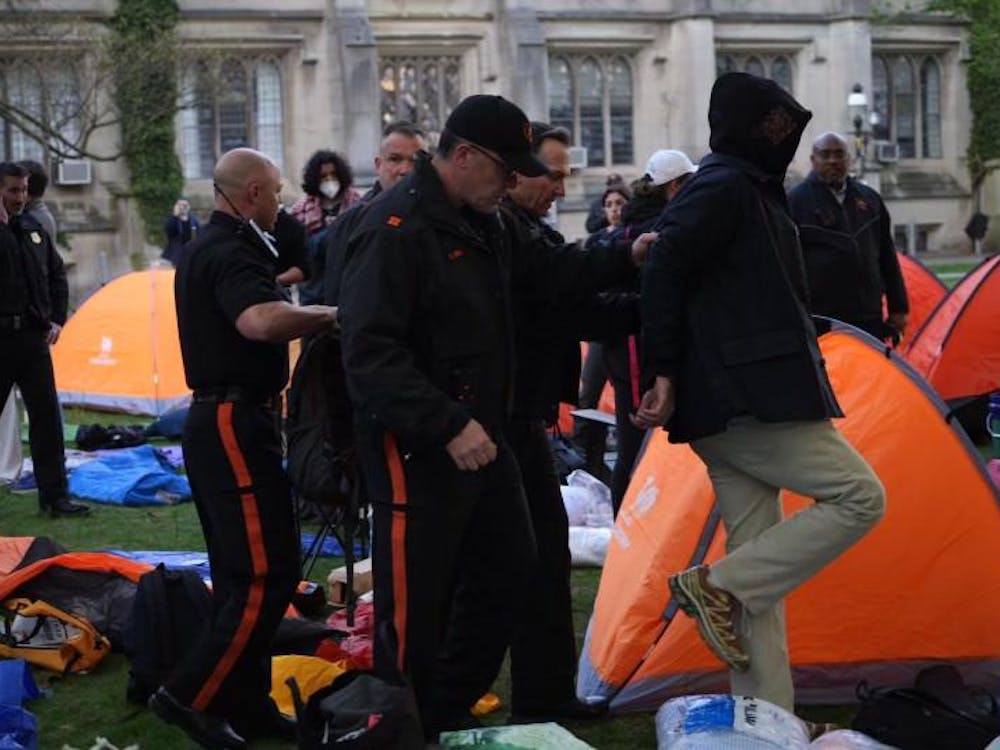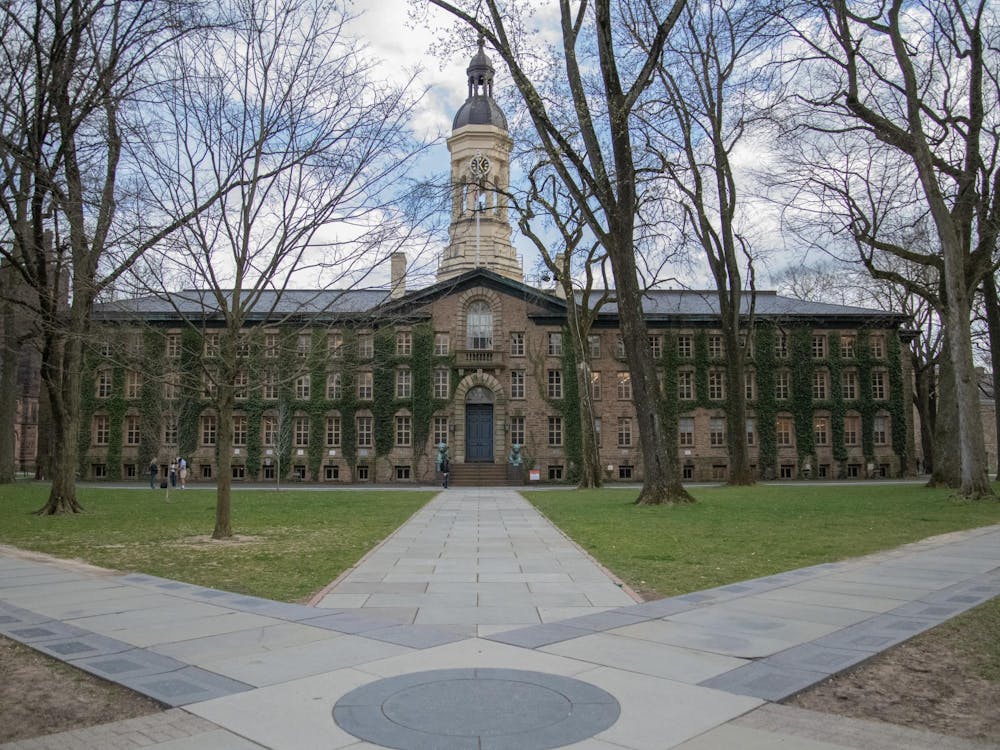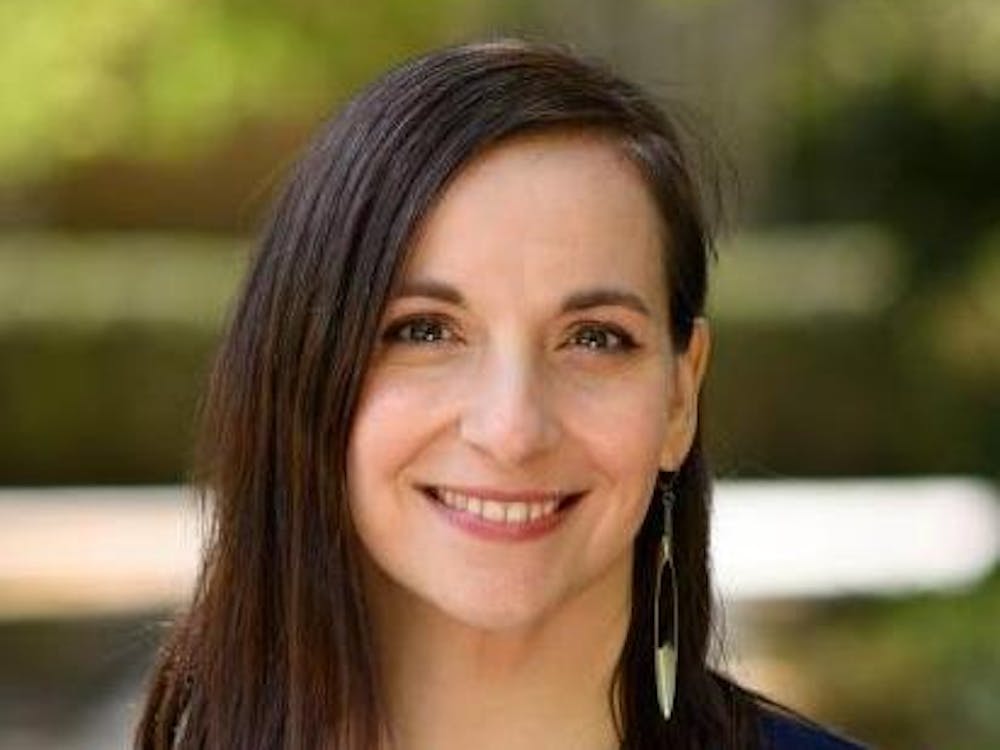New Jersey State Tax Court Judge Vito Bianco ruled against the University’s attempt to dismiss a lawsuit that challenges its tax-exemptions on 19 buildings, including Frist Campus Center and McCarter Theatre, due to procedural issues this past Friday.
The ruling comes with a series of past rulings that are part of the legal battles over the tax-exempt status of certain University properties and the University’s own tax-exempt status as an educational nonprofit.rkee
University General Counsel Ramona Romero deferred comment to University Media Relations Specialist Min Pullan.
Pullan deferred comment to a statement, which noted that the judge ordered the plaintiffs to file a list of the specific properties their lawsuit concerns within the next 30 days.
“As with any complicated lawsuit, it’s not uncommon for there to be various motions along the way that attempt to clarify which issues are on the table,” Vice President and Secretary Robert Durkee ’69 said.
Bruce Afran, legal counsel for the four plaintiffs who are town residents, described the motion as the University's 'last ditch' effort to obtain dismissal of the cases after seven unsuccessful rulings in court.
“The University is now zero and seven. These were questions that should never have been asked in the first place,” Afran said, adding that there is significant risk for the University if it goes to trial.
The trial concerning these legal questions of tax-exemption, originally scheduled for June 2016, was moved to October 2016, according to Durkee.
In addition, another clarification in November 2015 required the University to carry the burden of proof instead of the residents for proving tax exemption.
Durkee said that the November 2015 ruling was an “unusual” ruling.
“We’re confident that the buildings that are tax exempt should be tax exempt,” he said. “We’re in the process of preparing information since we have the burden of proof.”
While there was no specific catalyst for these cases, Afran noted that the 2008-09 recession and a 2010 property assessment which triggered higher property taxes for “people of modest means” were some of the causes.

“The University was getting wealthier and wealthier and people in the community were getting taxed more and more and we felt it was time to callit like it is,” Afran said.
Durkee noted that the University performs important public service by spending resources on its mission of education and research.
Afran, however, said the University is not a traditional, qualified nonprofit because its own charter allows it to engage in a variety of commercial business, adding that many other universities are also engaged in similar activities.
According to Afran, this case represents the first time anywhere in the United States where someone is challenging the assumption that colleges are charities when they are acting like "major conglomerates."
The time when universities were poor and needed this tax-exempt status has long passed, Afran noted.
The challenge to the University’s tax-exempt status could have state and national effects. While the judge’s ruling will only affect institutions in New Jersey, institutions in other states could potentially face similar lawsuits.
At the moment, Durkee said that he knows of no other universities that have faced challenges to their tax-exempt status as an education nonprofit. However, the impacts of this trial can change the outlook of tax-exempt status for peer institutions, he noted.
“It’s an important issue not just for Princeton, but for other colleges and universities and education, charitable and nonprofit institutions,” Durkee said.
The implications are even greater, according to Afran.
“Schools don’t pay income tax. If the court holds that the University should pay taxes, IRS might change its rulings as well,” he said.
Durkee said that in an earlier motion of this case, many New Jersey nonprofit and charitable organizations wrote amicus curiae briefs saying that they were quite concerned that if the court were to overturn a long history of tax exemption." Other organizations in the state will potentially be affected in very negative ways, the briefs read.
Durkee emphasized that he’s unsure why the town residents would be suing now when the University is engaged in many charitable activities with the town.
According to Durkee’s 2008 Letter to the Editor, the University is the largest taxpayer in Princeton and has made many voluntary financial contributions in the past.
Afran said that generous work does not grant immunity from taxation.
“Being the largest taxpayer really is a nonstarter. They happen to be biggest owner of commercial property, but they don’t get a free pass for rest of the campus,” Afran said.
He added that the University only agreed to pay $21.7 million in taxes per year to the town after being sued in 2011.
“Before that they were paying a total of $500,000 in donations,” he said.
The University jointly owns 20 private businesses and is engaged in commercial enterprises such as real estate, restaurants and pharmaceuticals, Afran said. Afran further noted that he wishes for the case to resolve amicably.








